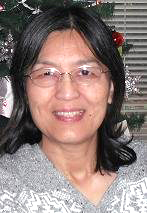
Wendy Liu
By Wendy Liu
For Northwest Asian Weekly
When Robert Kapp, founding executive director of the Washington State China Relations Council, first lobbied Governor Dixy Lee Ray for a state-to-province relationship between Washington and Sichuan, it was 1980. With the Washington-Sichuan relationship formally established in 1982, Mayor Charles Royer thought it made sense for Seattle to be involved with a city in the same province. It was settled that Chongqing, a key city and a port city, was willing. Seattle and Chongqing became sister cities in 1983.
If Kapp had called Sichuan Washington’s “Big Friend” in China, Mayor Charley never knew how big Seattle’s sister city would become. In 1997, Beijing elevated Chongqing as a special city to develop China’s west, incorporating a number of neighboring cities and counties to serve as a hub between China’s east and west. Overnight, Chongqing had a population of 28 million.
But Chongqing didn’t just become big, it became famous. Under Communist Party chief Bo Xilai, Chongqing was aiming high with five goals: livability, smooth transportation, and a green, safe, and healthy environment. Bo became synonymous with the Chongqing Model, which emphasized government’s role in developing the economy and improving people’s livelihood.
As we now all know, in early February, Bo Xilai’s police chief sought the American consulate in Sichuan for protection. By mid-March, Bo was sacked. Mayor McGinn could never have prepared himself for his visit to Chongqing one week after Bo Xilai’s sudden downfall. It is perhaps the biggest scandal out of China since the mysterious death in 1971 of Lin Biao, Mao’s supposed successor, Mayor McGinn arrived in Chongqing on March 22, leading a delegation of 50, for the “Seattle Week in Chongqing,” which both sides had planned months ahead.
According to Joe Borich, president of the Washington State China Relations Council, the Seattle delegation was relieved that Chongqing Mayor Huang Qifan, concurrently the deputy Communist Party chief, was able to meet the group after all. During the meeting, however, as Borich described in his trip notes, Huang went on a “30-minute soliloquy on Buddhism and Christianity.” Well, one shouldn’t blame Huang for trying to distract from the tension hanging over Chongqing.
China is never “what you see is what you get.” It may have undergone tremendous physical change in recent years, with skyscrapers, high-speed trains, etc. Underneath it all, two things that remains the same: the one-party rule under the Communist Party and the fierce, if not deadly, two-line struggle within. The struggle continues as it plays out in the mega-scandal of Bo Xilai, set in our sister city Chongqing. As the scandal continues to unfold, Seattleites as well as Washingtonians have a good opportunity to learn and to review our connection with China, just in time for two 30th anniversaries back to back ― the Washington-Sichuan friendship this year and the Seattle-Chongqing sisterhood the next. (end)
Wendy Liu is the author of “Connecting Washington and China–The Story of the Washington State China Relations Council.” She authors the website www.wensinterviews.us.
Opinions expressed do not necessarily reflect the views of the paper.



